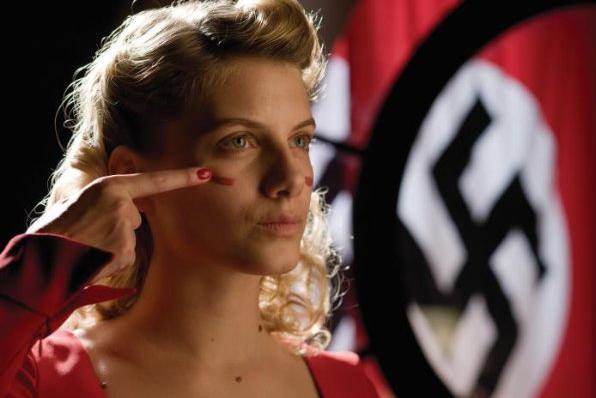| Academy Award Nominations and Winners: |
| Best Picture |
| Best Director: Quentin Tarantino |
| ★ | Best Supporting Actor: Christoph Waltz |
| Best Original Screenplay: Quentin Tarantino |
| Best Cinematography: Robert Richardson |
| Best Film Editing: Sally Menke |
| Best Sound: Michael Minkler, Tony Lamberti, and Mark Ulano |
| Best Sound Effects: Wylie Stateman |
|
| Golden Globe Nominations and Winners: |
| Best Picture (Drama) |
| Best Director: Quentin Tarantino |
| ★ | Best Supporting Actor: Christoph Waltz |
| Best Screenplay: Quentin Tarantino |
|
| Other Awards: |
| Cannes Film Festival: Best Actor (Waltz) |
| Screen Actors Guild Awards: Best Supporting Actor (Waltz); Best Ensemble Cast |
| New York Film Critics Circle: Best Supporting Actor (Waltz) |
| Los Angeles Film Critics Association: Best Supporting Actor (Waltz) |
| National Society of Film Critics: Best Supporting Actor (Waltz) |
| Boston Society of Film Critics: Best Supporting Actor (Waltz) |

